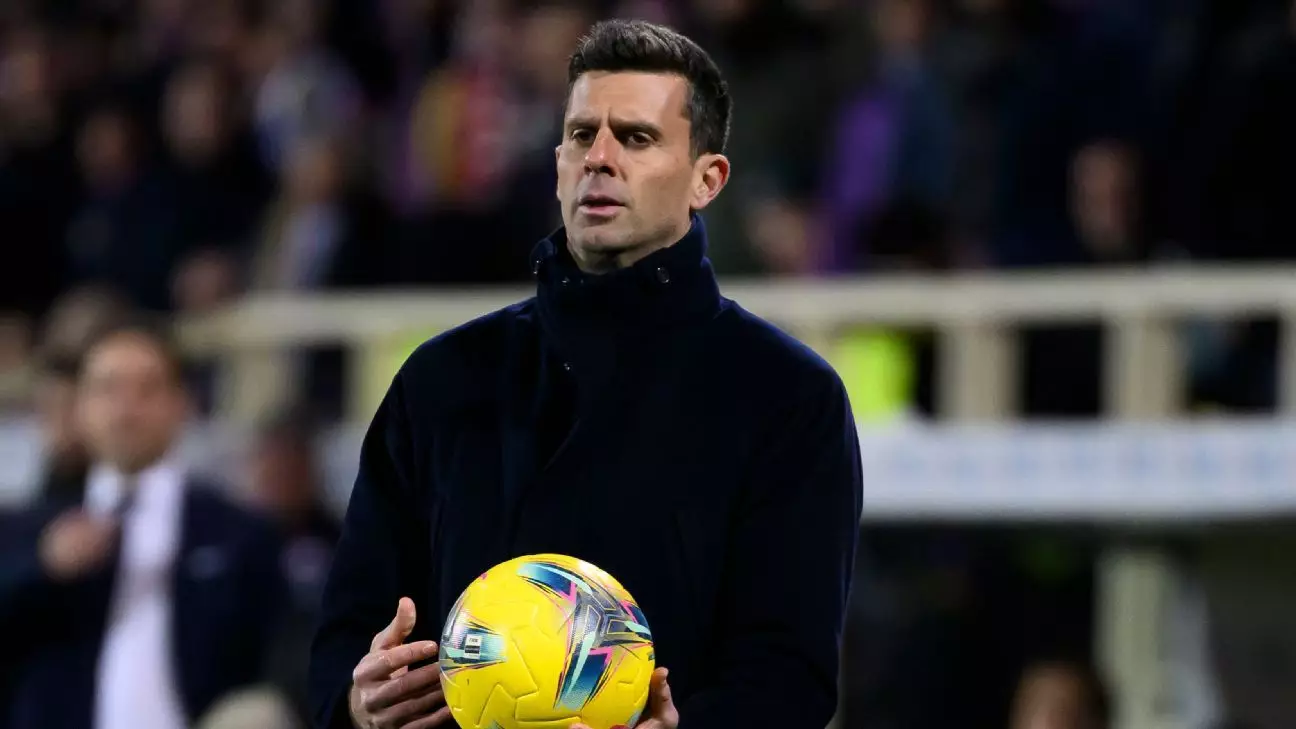In a dramatic twist for one of Italy’s most storied football clubs, Juventus has decided to part ways with manager Thiago Motta after a series of disheartening performances. The club’s latest statement announcing the dismissal underscores the urgency and desperation felt within its ranks—two consecutive heavy defeats at the hands of Fiorentina and Atalanta served as the final nails in Motta’s coffin. As Juventus tumbles to fifth in the Serie A standings, 12 points adrift of leaders Inter Milan, the existential crisis at this prestigious institution cannot be overstated.
This shake-up comes not just as a knee-jerk reaction to recent failures but as a strategic pivot aimed at rekindling the team’s competitive spirit. By appointing Igor Tudor, a familiar figure in Juventus’s history, the club appears to be leaning on nostalgia while hoping for a pragmatic turnaround.
The Legacy of Igor Tudor
Igor Tudor represents more than just a former player stepping behind the bench; he symbolizes a connection to the club’s glorious past. Having started his professional career at Juventus in 1998, Tudor’s trajectory includes stints as an assistant coach under Andrea Pirlo and managerial roles at various clubs like Udinese and Hellas Verona. At 46, he’s bringing a blend of youthful energy and seasoned insight to a club desperately in need of revitalization. His ascent to the managerial position comes at a challenging time but perhaps his intrinsic understanding of the club’s ethos will help him navigate these turbulent waters.
While his prior roles may not have carved a path of consistent success, Tudor’s time with teams like Hellas Verona showcased his capability to instill resilience and tactical ingenuity. His immediate challenge will be to reignite a Juventus side that, despite an unbeaten run earlier this season, has struggled with converting draws into wins. The glaring statistic—13 draws in 21 matches—raises questions about the team’s mentality and tactical approach under Motta.
The Pressure of Expectations
As Juventus gears up to face Genoa, the stakes couldn’t be higher for Tudor. Frustrated fans yearn for a return to the glory days—a prompt turnaround in fortunes is essential, not just for the sake of results but to restore the pride of a club that has long set the bar for success in Serie A. The searing disappointment of being knocked out of the Champions League by PSV Eindhoven and the gut-wrenching penalty loss to Empoli in the Coppa Italia further exacerbates the need for immediate action.
To achieve this, Tudor must not only focus on tactics but also foster an environment of unity and determination. His prior experiences have likely equipped him with the tools to build relationships with the players, something that has proven difficult under Motta’s harsher managerial style. For star players like Federico Chiesa, whose future at the club seemed perilous under the former coach, a more nurturing approach might unlock their full potential.
In this moment of reckoning, the question remains: Can Igor Tudor turn the tide for Juventus? In football, as in life, sometimes a fresh perspective and a dash of sincerity can reignite ambition, and for Tudor, this is an opportunity to carve out his legacy in a place that holds significant value in his heart. Juventus fans hold their breath as a new chapter unfolds, hoping for resurgence and relying on the club’s heritage to guide them back to their rightful place at the summit of Italian football.

